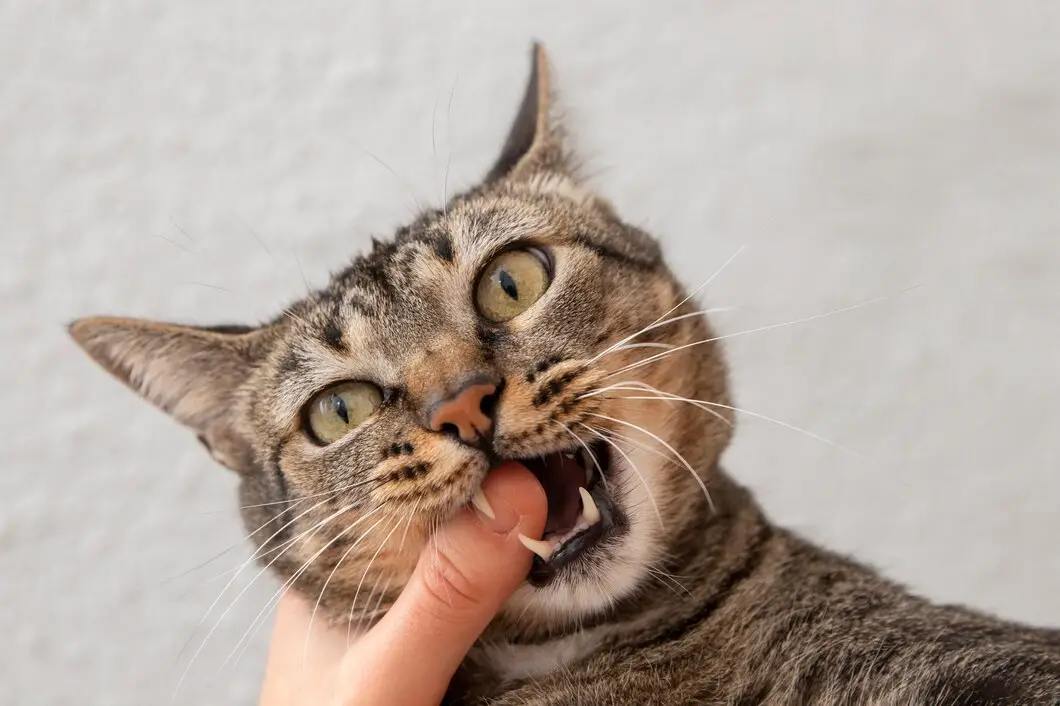Anyone who’s ever had a cat knows how wonderfully quirky these furry companions can be. From their playful antics to their curious nature, cats are endlessly entertaining. But every now and then, they can leave us scratching our heads—especially when they bite.
If you’ve ever been surprised by your cat’s sudden nibble, you’re not alone. Cats communicate in unique ways, and a bite can mean a variety of things depending on the situation. Whether it’s a soft, affectionate nibble or a firm nip, understanding the context can help you decipher your cat’s behavior.
Playful Bites: The Joy of Interaction
Cats are naturally playful creatures. In the wild, play is an essential part of a kitten’s development, teaching them hunting skills and coordination. Domesticated cats retain this playful nature, and it’s common for them to engage in spirited games with their human companions.
Sometimes during play, cats may deliver a gentle bite. These nips, often accompanied by pouncing or swatting, are rarely aggressive. Instead, they signal excitement or overstimulation. However, what starts as playful fun can sometimes escalate if a cat becomes too worked up.
If your cat tends to bite during playtime, it might be a sign that they need a break. Keep an eye on their body language—dilated pupils, twitching tails, or flattened ears can indicate they’re becoming overstimulated. Providing interactive toys, like feather wands or puzzle feeders, can help redirect their energy and reduce the chance of playful bites directed at you.
Affectionate Nibbles: A Love Language
Did you know that some cats bite as a sign of affection? These soft, gentle nibbles—sometimes referred to as “love bites”—are a way for cats to show they feel close to you.
Affectionate bites often occur during moments of contentment. For example, your cat might be purring and kneading your lap when they suddenly give you a little nibble. While it might seem contradictory, this behavior is rooted in how cats interact with each other. In the feline world, gentle biting can be a way to groom or bond with another cat.
If your cat gives you affectionate nibbles, it’s their unique way of saying, “I trust you, and I’m comfortable with you.” However, if you’re not a fan of this behavior, gently redirect them with a toy or stop petting them when the nibbling starts.
Attention-Seeking Bites: Pay Attention to Me!
Cats are masters of getting what they want, and sometimes, a bite is their way of saying, “Hey, notice me!” If your cat nips at you when you’re focused on something else, they might be seeking attention.
This behavior is especially common in cats who crave interaction or feel neglected. For instance, if you’ve been busy and your cat hasn’t had much playtime, they might resort to a bite to grab your focus.
To address this, ensure your cat receives plenty of mental and physical stimulation throughout the day. Regular play sessions, interactive toys, and even a cozy window perch for birdwatching can help fulfill their need for activity and reduce attention-seeking bites.
Overstimulation or Sensory Sensitivity
Cats are sensitive creatures, and sometimes, even the most well-meaning petting can overwhelm them. Known as “petting-induced aggression,” this phenomenon occurs when a cat enjoys being petted initially but becomes overstimulated over time.
The threshold for overstimulation varies between cats. Some enjoy prolonged petting sessions, while others prefer brief interactions. Signs that your cat might be reaching their limit include twitching tails, rippling fur, or a sudden turn of the head. If these cues are ignored, your cat may resort to biting as a way to say, “Enough!”
To avoid overstimulation, pay close attention to your cat’s body language during petting sessions. Learning their preferences and stopping before they become uncomfortable can prevent bites and strengthen your bond.
Fear or Defensive Bites
Not all bites are playful or affectionate—some stem from fear or stress. If a cat feels threatened or cornered, they may bite as a defensive response.
Fear-induced biting often occurs during situations like vet visits, interactions with unfamiliar people, or loud, chaotic environments. Cats are more likely to display other warning signs, such as hissing, growling, or swiping, before resorting to a bite.
Creating a calm, safe environment for your cat can help reduce stress-related biting. If you’re introducing your cat to new experiences, go slow and provide plenty of positive reinforcement to help them feel secure.
Health-Related Causes
In some cases, a sudden change in behavior, including biting, could indicate an underlying health issue. Cats experiencing pain, discomfort, or illness might bite as a way to communicate their distress.
For example, a cat with dental problems might react aggressively when their face is touched, or a cat with arthritis might bite if a sore area is pressed. If your cat’s biting behavior seems unusual or out of character, it’s worth consulting a veterinarian to rule out any medical concerns.
Building a Better Bond
Understanding why your cat bites is the first step in addressing the behavior. Whether it’s playful, affectionate, or defensive, every bite tells a story about your cat’s emotions and needs.
By paying attention to context and body language, you can respond appropriately and strengthen your bond with your feline friend. Remember, patience and understanding are key to creating a harmonious relationship with your quirky, lovable companion.

